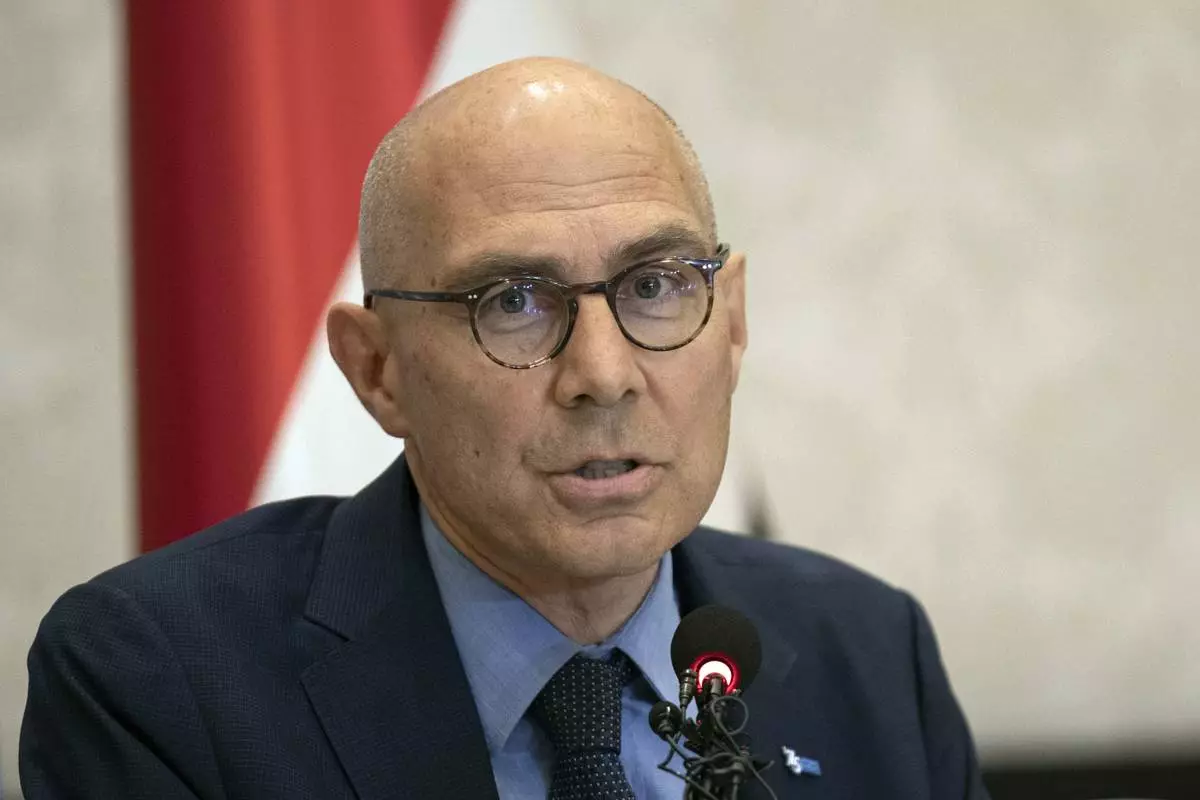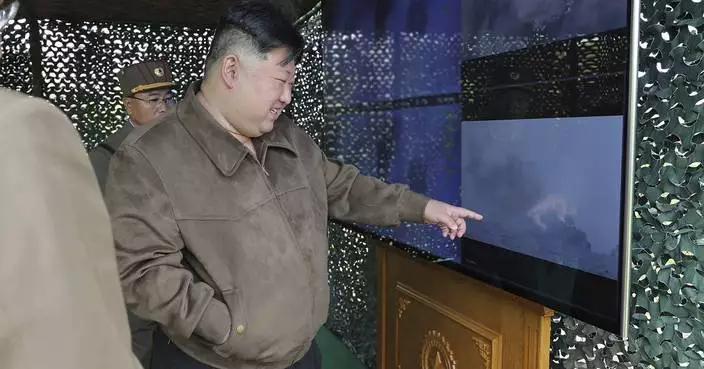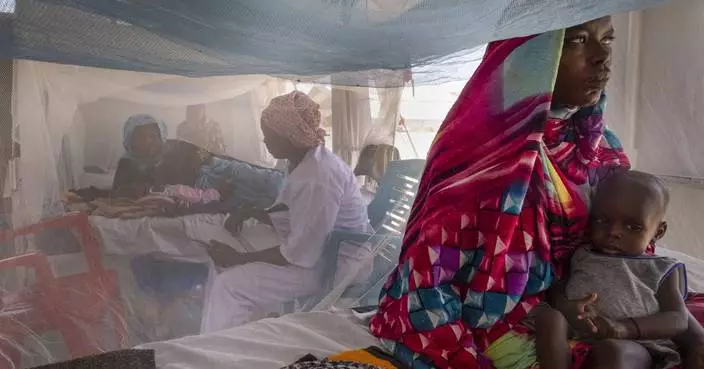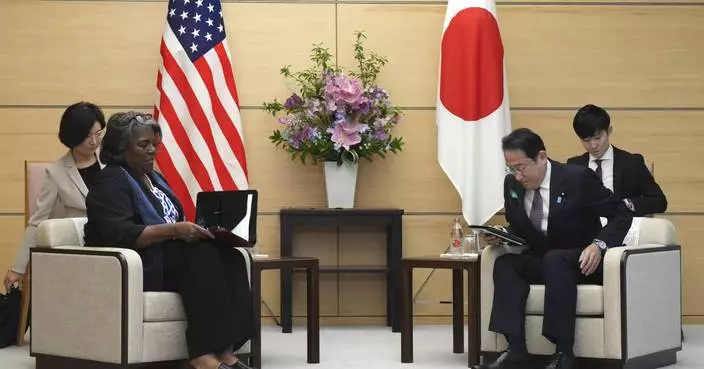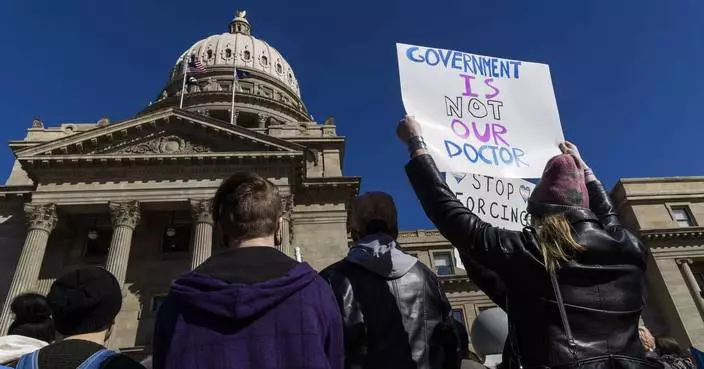Nikki Haley came to her job as the top U.S. diplomat at the United Nations with no foreign policy experience, but in less than two years she made many friends — even among ambassadors from countries at odds with the Trump administration's policies.
Tuesday's sudden announcement that she was leaving by the end of the year ricocheted through U.N. headquarters like a lightning bolt, with many expressing shock, and some sadness and dismay.
"It was a surprise, not a very pleasant one for me personally," said Russia's U.N. Ambassador Vassily Nebenzia, whose country has clashed with U.S. positions including on Syria, Iran and Israeli-Palestinian conflict.
The ambassadors on the powerful U.N. Security Council who worked closely with Haley praised her — a testament to her skills and success as a diplomat — though many of their countries, including America's traditional allies, have serious issues with her government's foreign policy.
When Haley arrived at the U.N. on Jan. 27, 2017, she was the former governor of South Carolina and a novice at international affairs but she wasted no time in announcing a new way the U.S. was going to do business.
The Trump administration's goal was to show U.S. strength, speak out, and defend its allies — and as for countries opposing America, "we're taking names" and will respond accordingly, she said.
Haley has kept to that goal, but she has also honed her diplomatic skills, which were recognized by half a dozen members on the 15-nation Security Council as they headed into a closed meeting Tuesday afternoon on chemical weapons in Syria.
Nebenzia said he and Haley have "good working and personal relations despite all the differences that we were and are having."
"She's a charismatic personality," he said. "She was a friend to all of us, and ... beyond the doors of the Security Council we as a group were very friendly."
Bolivia's U.N. Ambassador Sasha Llorentty Soliz said the Security Council "is like a family — sometimes a dysfunctional family — but nevertheless we care about each other and I really like Nikki very much."
The good personal relations, however, could never mask the sharp differences over a host of issues ranging from U.S. policy toward Syria to Trump's withdrawal from the Iran nuclear deal, the Paris climate agreement and the U.N. Human Rights Council. Washington's decisions to halt to funding for the U.N. agency for Palestinian refugees and to move the U.S. embassy in Israel to Jerusalem also upset some council members.
Llorentty Soliz stressed the separation, echoing Bolivian President Evo Morales, who launched a blistering critique of U.S. policy toward Iran, the Mideast and Trump's immigration policies at a Security Council meeting the American president presided over on Sept. 26 during the annual U.N. gathering of world leaders.
Sweden's U.N. Ambassador Olof Skoog said "there are issues that relate to the U.N. where we don't always see eye to eye, but with Nikki there has always been a very close relationship, respectful and very frank."
While Haley's speeches in the council can sometimes "be very strong," he said, council members were often invited to her apartment afterward.
France's U.N. Ambassador Francois Delattre, who met Haley when she was governor of South Carolina and he was ambassador to Washington, said "even though we didn't agree on everything, we had established a particularly close and constructive working relationship based on trust."
"Nikki Haley is one of the most talented, most authentic U.S. government officials that I have ever met," he said.
At a White House event, seated near Trump in the Oval Office, Haley told reporters that her six years as governor followed by nearly two years at the U.N. has been an "intense time, and I'm a believer in term limits."
"I have given everything I've got these last eight years," she said. "I think you have to be selfless enough to know when to step aside and allow someone else to do the job."
Trump told her: "Hopefully, you'll be coming back at some point."
The daughter of Indian immigrants, Haley, who is 46 and not personally wealthy, hinted in her resignation letter to Trump that she is headed to the private sector. She said that as a businessman Trump would appreciate "my sense that returning from government to the private sector is not a step down but a step up."
As for a replacement, Trump told reporters aboard Air Force One he was considering five candidates and a successor would be named in two to three weeks — or maybe sooner. Among those under consideration, Trump said, is former deputy national security adviser Dina Powell.
Trump told reporters he heard his daughter Ivanka Trump's name discussed for the post, but said if he selected her he'd be accused of nepotism, and she later ruled herself out in a tweet.
U.S. Ambassador to Germany Richard Grenell's name has also been floated for the post, but Trump suggested he'd rather keep him in his current post "because he's doing such a good job."
Privately, many diplomats believe Haley will run for president, though she ruled out 2020 on Tuesday without being asked, and pointed to Trump saying she will campaign for him.
"She's young, she's energetic, she's ambitious," Russia's Nebenzia said. "I think we will see her after she has this well-deserved respite that she was referring to" in her remarks at the White House.



